Welcome to Felix Hospitals comprehensive guide to sinus surgery, a procedure tailored to alleviate a range of sinus-related ailments and offer respite to those enduring chronic sinusitis and associated conditions. Throughout this exploration, we'll delve into the nuances of sinus surgery, encompassing its objectives, various procedures, eligibility criteria, recuperation phases, and potential advantages. Whether you're contemplating sinus surgery for yourself or seeking insights for a loved one, accompany us on this informative journey as we navigate the intricacies of sinus surgery to empower you with knowledge for making informed healthcare decisions.
Book Your Appointment One click at +91 9667064100
In the realm of medical procedures, sinus surgery stands as a crucial intervention for individuals grappling with chronic sinusitis or other sinus-related issues. However, beyond the medical necessity and the potential relief it offers, there exists a veil of uncertainty surrounding the cost aspect of sinus surgery. In this comprehensive guide, we embark on a journey to decode the intricacies of Sinus Surgery Cost , shedding light on the factors that influence pricing, the range of expenses involved, and strategies for navigating the financial aspects of this procedure. Join us as we delve into the realm of Sinus operation Cost in Noida and empower individuals with the knowledge needed to make informed decisions about their healthcare journey. Contact Felix Hospital today at +91 9667064100.
Cost of Sinus Surgery in Noida
The cost of functional endoscopic sinus surgery (FESS) typically ranges from Rs. 35,000 to Rs. 50,000. However, it's important to note that this is a reference cost, and the actual price may vary based on factors such as the specific sinus infection being treated, whether additional procedures like septoplasty are required, and the individual medical condition of the patient. To obtain more precise information about the cost of FESS surgery in various cities across the country and to explore options for cost-efficient treatment, feel free to reach out to us.
Here's a breakdown of the approximate cost of FESS surgery in Noida:
Starting Cost | ₹ 35,000 |
Average Cost | ₹ 40,000 |
Maximum Cost | ₹ 50,000 |
We're here to assist you in understanding the cost implications of FESS surgery and to help you access quality treatment options tailored to your needs and budget.
What is Sinus Surgery?
Sinus surgery is a medical procedure performed to address chronic sinusitis and related conditions, which cause inflammation and blockages in the sinus cavities. When conservative treatments like medications and nasal sprays fail to provide relief, sinus surgery may be recommended.
During sinus surgery, the surgeon aims to remove blockages in the sinus passages, improve drainage, and alleviate symptoms. Techniques may include endoscopic sinus surgery, balloon sinuplasty, or traditional sinus surgery. Endoscopic sinus surgery is the most common approach, utilizing a thin tube with a camera to access and remove blockages without external incisions.
The cost of sinus surgery can vary depending on factors such as the specific procedure performed, the surgeon's expertise, the hospital's facilities, and any additional medical needs. It is essential to discuss the potential costs with your healthcare provider and inquire about insurance coverage or payment options.
Causes of Sinus Surgery
The cause of sinus surgery is typically chronic sinusitis, a condition characterized by inflammation and blockages in the sinus cavities. Chronic sinusitis can result from various factors, including:
- Infections: Recurrent or persistent bacterial, viral, or fungal infections in the sinuses can lead to chronic inflammation and sinus blockages.
- Allergies: Allergic reactions to environmental allergens such as pollen, dust, or pet dander can trigger inflammation in the sinus passages, contributing to chronic sinusitis. Understanding the Sinus Surgery Cost is crucial for patients considering this procedure, as it can vary depending on several factors.
- Structural abnormalities: Nasal polyps, deviated septum, or other structural issues in the nasal and sinus passages can obstruct proper drainage and ventilation, leading to chronic sinus problems.
- Environmental irritants: Exposure to irritants such as cigarette smoke, pollutants, or strong odors can irritate the sinus membranes, exacerbating inflammation and congestion.
- Immune system disorders: Conditions that weaken the immune system, such as HIV/AIDS or autoimmune diseases, may increase the risk of chronic sinusitis by impairing the body's ability to fight infections.Patients should inquire about insurance coverage and financing options to help manage the Cost of sinus surgery and ensure access to necessary medical care.
- Previous sinus surgery: In some cases, individuals may require repeat sinus surgery due to inadequate resolution of symptoms or recurrence of sinus issues following a previous procedure.
Overall, sinus surgery is recommended when conservative treatments fail to provide relief, and the benefits of surgery outweigh the risks. It aims to alleviate symptoms, improve sinus drainage, and enhance overall quality of life for individuals with chronic sinusitis or related conditions. Some hospitals or surgical facilities may offer payment plans or financing options to assist patients in covering the cost of sinus surgery, making it more accessible and manageable.
Symptoms of Sinus Surgery
It seems there might be a misunderstanding in your query. Sinus surgery itself is a medical procedure aimed at treating symptoms of chronic sinusitis or other sinus-related issues. Therefore, it is not accurate to discuss "symptoms of sinus surgery."
However, after sinus surgery, patients may experience some common post-operative symptoms or side effects, which can include:
- Nasal congestion: Temporary congestion or stuffiness in the nose is common after sinus surgery as the nasal passages heal.
- Drainage: Some patients may experience nasal discharge, which can be clear, bloody, or mucous-like, during the initial recovery period. Factors such as the type of procedure performed, the surgeon's experience, and any pre-existing conditions can all impact the overall Sinus Surgery Cost.
- Facial pain or pressure: Mild discomfort or pressure around the eyes, cheeks, or forehead may occur as the sinuses heal.
- Fatigue: It is normal to feel tired or fatigued in the days following sinus surgery as the body focuses on healing.
- Mild bleeding: Light bleeding from the nose is typical after sinus surgery but should subside within a few days.
- Swelling: Swelling of the nasal tissues and face may occur temporarily after surgery but should gradually improve as healing progresses.
It's essential to follow post-operative care instructions provided by your healthcare provider to minimize discomfort and promote optimal healing after sinus surgery. If you experience severe or worsening symptoms after sinus surgery, it's important to contact your healthcare provider for further evaluation and guidance.Understanding the Sinus Surgery Cost is crucial for patients considering this procedure, as it can vary depending on several factors.
Benefits of Sinus Surgery
Sinus surgery, also known as sinusitis surgery or sinus surgery, can offer several benefits for individuals suffering from chronic sinusitis or other sinus-related issues. Some of the key benefits of sinus surgery include:
- Improved Quality of Life: By addressing chronic sinusitis symptoms such as nasal congestion, facial pain or pressure, headaches, and difficulty breathing, sinus surgery can significantly enhance a person's overall quality of life. With improved sinus function and reduced symptoms, individuals can enjoy better sleep, increased energy levels, and enhanced daily functioning. Patients should inquire about insurance coverage and financing options to help manage the Sinus Surgery Cost and ensure access to necessary medical care.
- Relief from Chronic Symptoms: Sinus surgery aims to remove blockages in the sinus passages, improve drainage, and alleviate symptoms associated with chronic sinusitis. By addressing the underlying causes of sinus inflammation and infection, surgery can provide long-term relief from recurrent sinus infections, nasal congestion, and other bothersome symptoms.
- Enhanced Breathing and Nasal Function: Sinus surgery can help restore normal airflow through the nasal passages by opening up blocked or narrowed sinus openings. This can lead to improved breathing, reduced nasal congestion, and better nasal airflow, allowing individuals to breathe more comfortably and easily through their nose. Understanding the Sinus Surgery Cost empowers patients to plan for their healthcare expenses and make choices that align with their budget and medical needs.
- Reduced Need for Medications: For some individuals with chronic sinusitis, medications such as antibiotics, nasal corticosteroids, and decongestants may provide only temporary relief or be ineffective in managing symptoms. Sinus surgery can reduce the need for long-term medication use by addressing the underlying structural issues contributing to sinusitis and promoting natural drainage and airflow.
- Prevention of Complications: Untreated chronic sinusitis can sometimes lead to complications such as sinus infections, sinusitis-related headaches, and the spread of infection to nearby structures. By addressing chronic sinusitis through surgery, individuals can reduce the risk of developing complications and improve their overall sinus health and well-being. The Sinus Surgery Cost can vary depending on several factors.
It's essential to discuss the potential benefits and risks of sinus surgery with a qualified healthcare provider to determine if it is the right treatment option for your specific condition. Each individual's situation is unique, and the decision to undergo sinus surgery should be made based on a thorough evaluation of your medical history, symptoms, and treatment goals. At Felix Hospital, we prioritize patient care in a supportive environment tailored to your specific sinus needs and goals. Schedule a consultation with our sinus surgery team today to explore treatment options and discuss associated costs. Contact us at +91 9667064100.
Process of Sinus Surgery
Sinus surgery, also known as sinusitis surgery, is a medical procedure performed to treat chronic sinusitis or other sinus-related conditions. The process of sinus surgery typically involves the following steps:
- Consultation and Evaluation: Before undergoing sinus surgery, patients will have a consultation with an otolaryngologist (ear, nose, and throat specialist) who will evaluate their medical history, symptoms, and diagnostic imaging (such as CT scans) to determine if surgery is necessary and appropriate. Patients should be aware that the Sinus Surgery Cost is not uniform for all patients.
- Preoperative Preparation: Once the decision for surgery is made, patients will receive preoperative instructions from their healthcare provider. This may include fasting before surgery, discontinuing certain medications that can increase the risk of bleeding, and arranging for transportation to and from the hospital or surgical center.
- Anesthesia: Sinus surgery is typically performed under general anesthesia, although in some cases, local anesthesia with sedation may be used. The type of anesthesia used will depend on the specific procedure being performed and the patient's medical condition.
- Surgical Procedure: During sinus surgery, the surgeon will access the sinus cavities through the nostrils using an endoscope (a thin, flexible tube with a camera). The surgeon may use specialized instruments to remove obstructive tissue, open blocked sinus passages, and improve drainage. The specific techniques used will depend on the patient's anatomy and the extent of the sinus disease.Patients should be aware that the Sinus Surgery Cost is not uniform for all patients.
- Postoperative Care: After sinus surgery, patients will be monitored closely in a recovery area until they are awake and stable. They may experience mild discomfort, nasal congestion, and drainage in the days following surgery. Pain medications, nasal irrigation, and nasal decongestants may be prescribed to help manage symptoms and promote healing.
- Follow-up Visits: Patients will typically have follow-up appointments with their surgeon to monitor their progress, remove nasal packing or splints if necessary, and ensure proper healing. Additional treatments or adjustments to the surgical plan may be made based on the patient's response to surgery. The sinus operation cost can vary depending on several factors.
As for the cost of sinus surgery in Noida, it can vary depending on factors such as the specific procedure performed, the surgeon's experience and expertise, the hospital or surgical center where the procedure is performed, and any additional services or facilities required. It is essential for patients to consult with their healthcare provider and obtain a detailed cost estimate before undergoing sinus surgery to ensure they understand the financial implications and make informed decisions about their care.
Diagnosing sinusitis
Diagnosing sinusitis involves a series of tests to assess various factors contributing to the condition . The sinus operation cost can vary depending on several factors:
- Blood Tests: Routine blood tests can detect infections, indicated by elevated white blood cell counts. Specific types of white blood cells, such as eosinophils, may increase with allergies or hay fever, which can lead to sinusitis. Individuals with conditions like HIV/AIDS or diabetes, which compromise immunity, may also undergo blood tests.
- Transillumination Test: This involves using a special light to examine the inside of the nose, aiding in the detection of nasal polyps, bony spurs, deviated septum, and other anatomical defects that can narrow nasal passages and predispose individuals to sinusitis. Normally, sinuses appear hollow and light shines through, but inflammation and blockages prevent light transmission. Some hospitals or surgical facilities may offer payment plans or financing options to assist patients in covering the sinus operation cost, making it more accessible and manageable.
- X-ray: X-rays reveal sinuses as hollow black cavities. Inflammation and blockages due to infection are visible as white discharge.
- Nasal Endoscopy: A fiber-optic endoscope allows visualization of sinus linings. Lubricating nasal passages with local anesthetics facilitates passage of the scope for inspection.
- CT Scan or MRI: Imaging studies are used to investigate suspected fungal sinusitis or tumors and to detect anatomical abnormalities. These scans provide detailed images of the sinuses and surrounding structures.
- Allergy Testing: Individuals with allergies may undergo allergy testing to identify specific allergens triggering their symptoms.
- Sweat Chloride Tests: These tests help assess the function of nasal and sinus ciliary cells and rule out conditions like cystic fibrosis, which can predispose individuals to sinusitis. Understanding the sinus operation cost empowers patients to plan for their healthcare expenses and make choices that align with their budget and medical needs.
Additionally, samples of nasal and sinus lining cells may be examined under a microscope for abnormalities. Conditions mimicking sinusitis, such as allergic rhinitis, the common cold, adenoiditis, and other causes of headaches, must be considered during diagnosis.
Surgical Treatment for Chronic Sinus Infections in Noida
Chronic sinus infections are increasingly prevalent in Noida, a country grappling with significant air pollution issues. Ranked as the fifth most polluted nation globally, millions of people are exposed to air that fails to meet WHO health standards, leading to widespread respiratory problems such as chronic sinusitis. To address this issue, functional endoscopic sinus surgery (FESS) has emerged as an effective modern procedure aimed at improving sinus ventilation and treating chronic sinusitis.
During FESS, surgeons utilize an endoscope to visualize and access blocked sinuses. They then proceed to remove obstructions like nasal polyps, deviated nasal septum, etc., in order to facilitate sinus drainage. In cases where chronic sinusitis is caused by a deviated nasal septum, surgeons may also perform septoplasty. This procedure corrects the misalignment of the nasal septum to enhance breathing. Depending on the primary cause of chronic sinusitis, surgeons may perform either septoplasty, FESS, or both procedures simultaneously. The cost of septoplasty typically ranges from Rs. 50,000 to Rs. 60,000, varying based on the severity of deviation and other contributing factors.
Does Insurance Cover Endoscopic Sinus Surgery in Noida?
Endoscopic sinus surgery is often covered by insurance companies in Noida, providing substantial financial assistance for patients undergoing the procedure. However, the extent of coverage may vary depending on the specific insurance policy and the terms and conditions outlined by the insurance provider. For detailed information regarding insurance coverage for your endoscopic sinus surgery in Noida, feel free to contact us.
Conclusion
In conclusion, sinus surgery, particularly functional endoscopic sinus surgery (FESS), is a highly effective and minimally invasive procedure aimed at providing relief to individuals suffering from chronic sinusitis and related conditions. By addressing blockages and obstructions in the sinus passages, FESS helps improve sinus ventilation and alleviate symptoms such as nasal congestion, facial pain, and difficulty breathing. With advancements in medical technology and surgical techniques, sinus surgery has become safer and more accessible, offering patients the opportunity to regain their quality of life and overall well-being. If you're considering sinus surgery as a treatment option, consult with a qualified healthcare provider to discuss the potential benefits and risks based on your individual medical history and condition.
Felix Support
Felix Hospital stands at the forefront of providing advanced sinus surgery solutions, known for its expertise and affordability. Our dedicated sinus surgery clinic is committed to improving sinus health and offering relief to individuals suffering from chronic sinusitis and related conditions. With a team of experienced sinus surgeons, technicians, and support staff, we utilize state-of-the-art technology and modern facilities to ensure superior surgical outcomes. At Felix Hospital, we prioritize patient care in a supportive environment tailored to your specific sinus needs and goals. Schedule a consultation with our sinus surgery team today to explore treatment options and discuss associated costs. Contact us at +91 9667064100.
Frequently Asked Questions (FAQs) on Sinus Surgery:
- What is sinus surgery, and when is it recommended?
ANS. Sinus surgery is a medical procedure performed to treat chronic sinusitis and related conditions. It is recommended when conservative treatments like medications fail to provide relief from symptoms such as nasal congestion, facial pain, and difficulty breathing.
- What are the different types of sinus surgery procedures available?
ANS. The main types of sinus surgery include functional endoscopic sinus surgery (FESS), balloon sinuplasty, and traditional sinus surgery. FESS is the most common approach and involves using an endoscope to remove blockages in the sinuses.
- How is sinus surgery performed, and what is the recovery process like?
ANS. Sinus surgery is typically performed under general anesthesia. During the procedure, the surgeon accesses the sinuses through the nose using specialized instruments. Recovery time varies depending on the type of surgery and individual factors but generally involves a few days of rest and limited activity.
- What conditions can sinus surgery treat?
ANS. Sinus surgery can effectively treat chronic sinusitis, nasal polyps, deviated septum, and other conditions that cause blockages in the sinus passages.
- What factors determine the Sinus Surgery Cost in Noida?
ANS. The Sinus Surgery Cost in Noida can vary depending on several factors, including the type of procedure performed, the complexity of the surgery, the surgeon's experience and reputation, the location of the hospital or surgical facility, any additional treatments or tests required, and whether insurance coverage is available.
- Is sinus surgery covered by insurance?
ANS. In many cases, sinus surgery may be covered by health insurance, especially if it is deemed medically necessary to treat chronic sinusitis or related conditions. However, coverage may vary depending on the specifics of your insurance policy and the terms and conditions set by your insurance provider. It is recommended to check with your insurance company to determine your coverage options and any out-of-pocket expenses you may incur.
- What is the average Sinus Surgery Cost in Noida ?
ANS. The average cost of sinus surgery can vary widely depending on the factors mentioned earlier. On average, the cost of functional endoscopic sinus surgery (FESS) in Noida starts from around Rs. 55,000 and can go up to Rs. 60,000. However, these are reference costs, and the actual price may differ based on individual circumstances and the healthcare provider.
- Are there any additional costs associated with sinus surgery?
ANS. In addition to the cost of the surgery itself, there may be additional expenses such as pre-operative consultations, diagnostic tests (such as imaging studies or blood tests), anesthesia fees, hospital or surgical facility fees, post-operative medications, follow-up appointments, and any unforeseen complications or revisions that may arise.
These answers are intended as general information and should not replace advice from a qualified healthcare professional. Always consult with your doctor for personalized medical advice and treatment options.
Book an Online Appointment: https://www.felixhospital.com/contact
 WhatsApp
WhatsApp
 info@felixhospital.com
info@felixhospital.com +(91) 9667064100
+(91) 9667064100 WhatsApp
WhatsApp
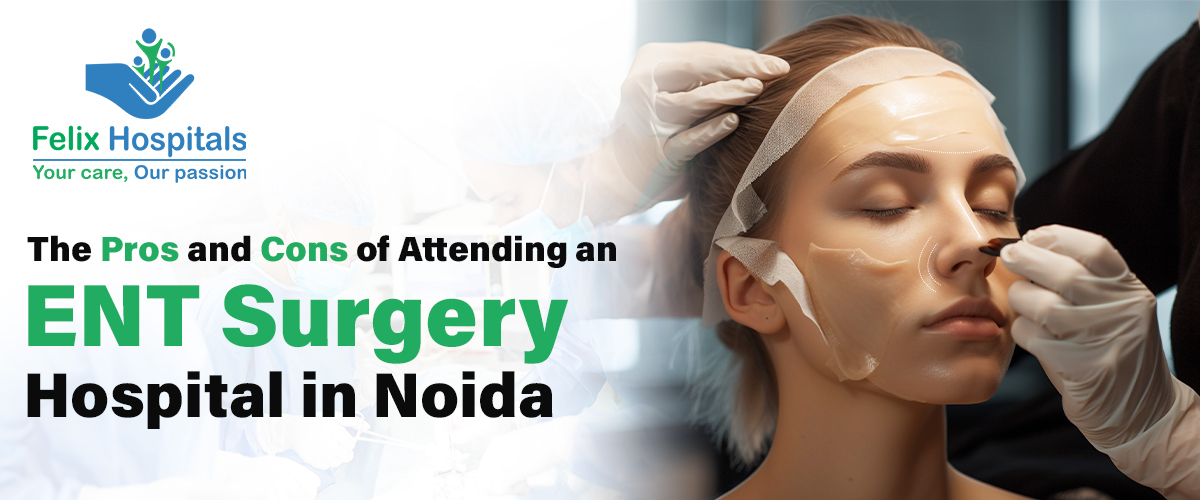



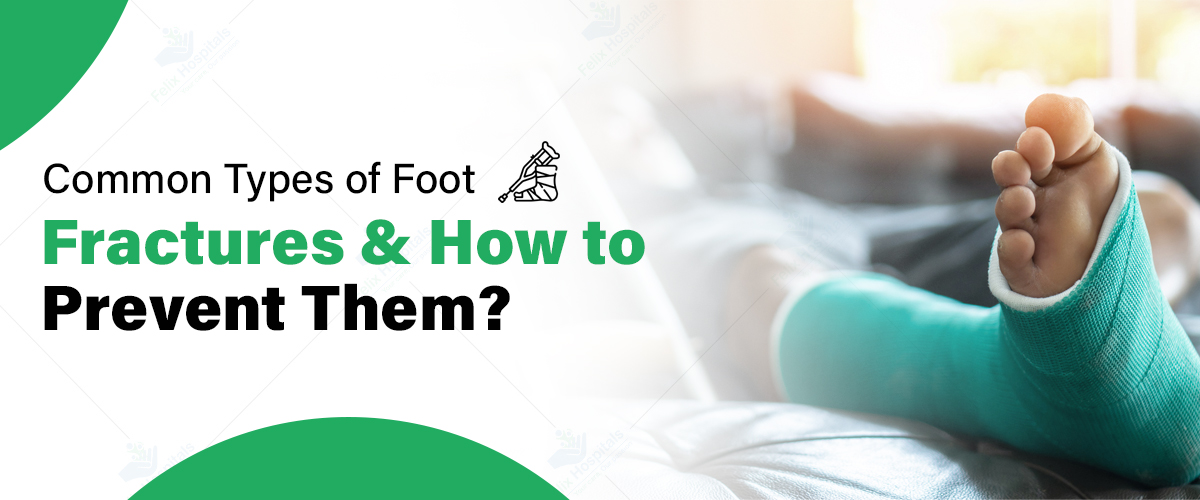


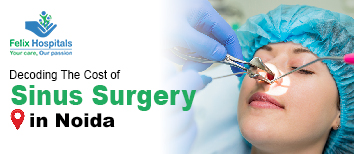

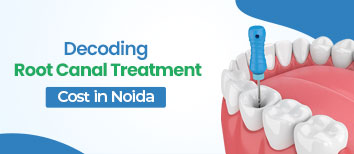

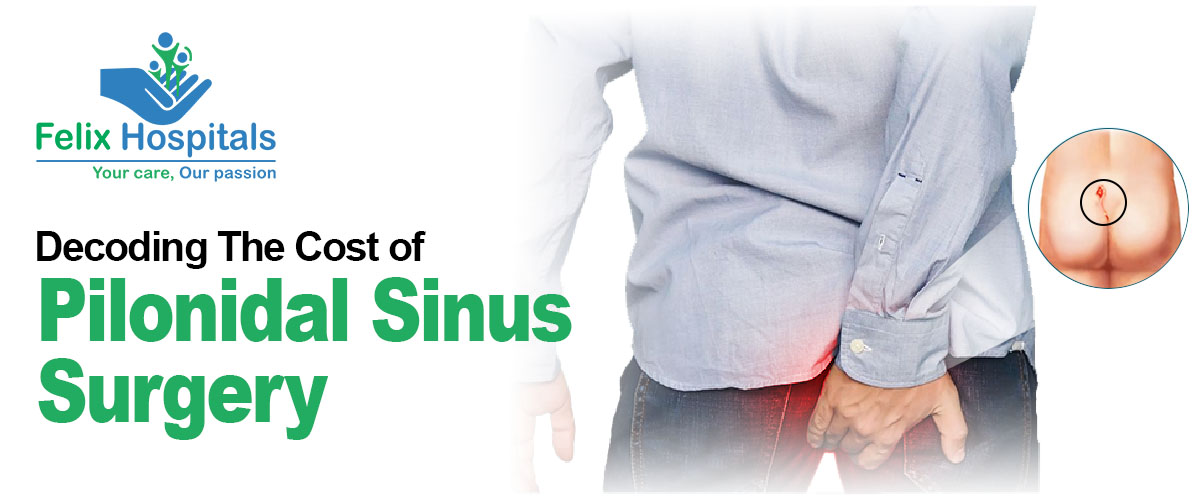
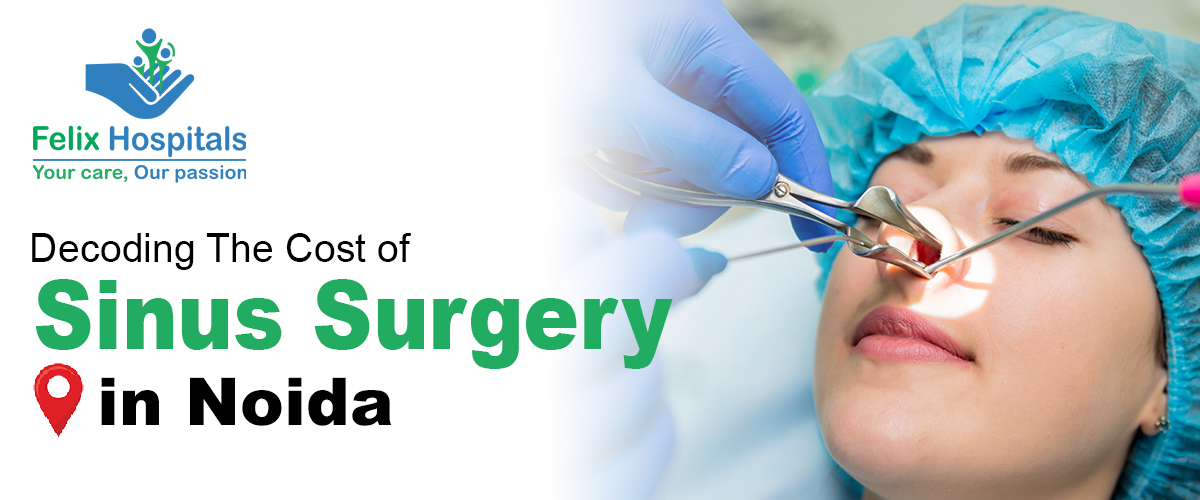
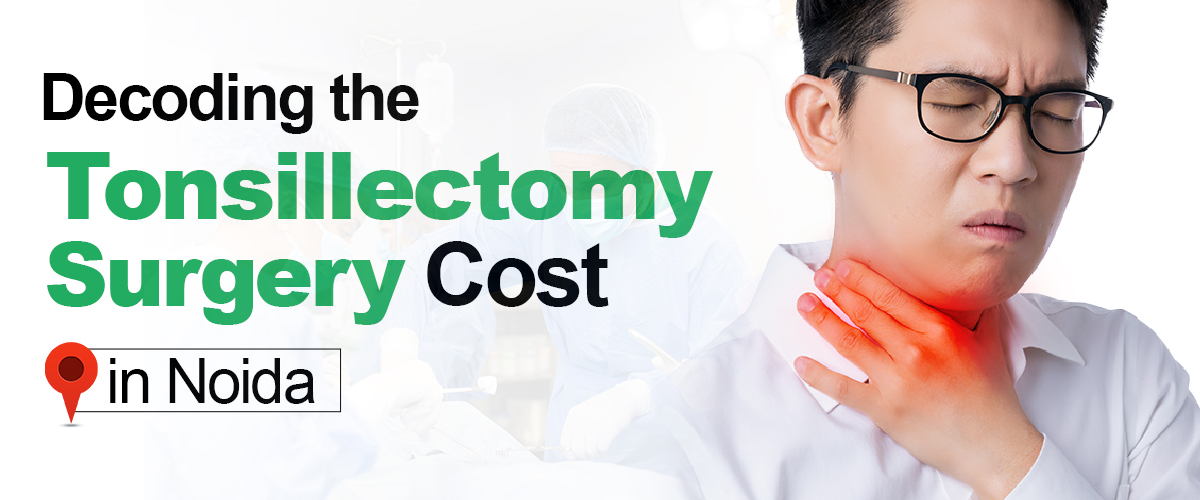
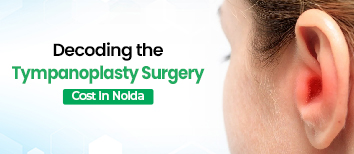
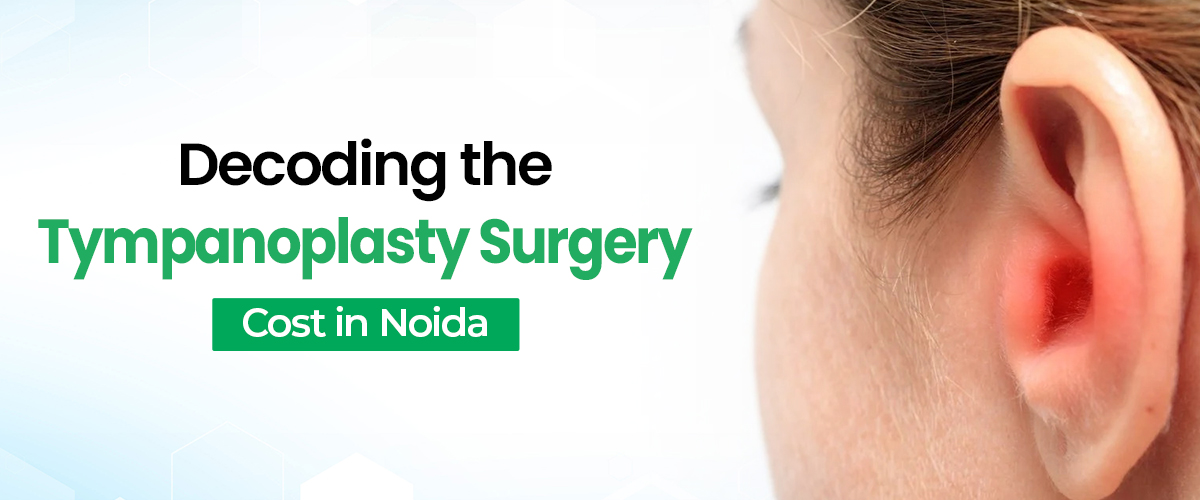

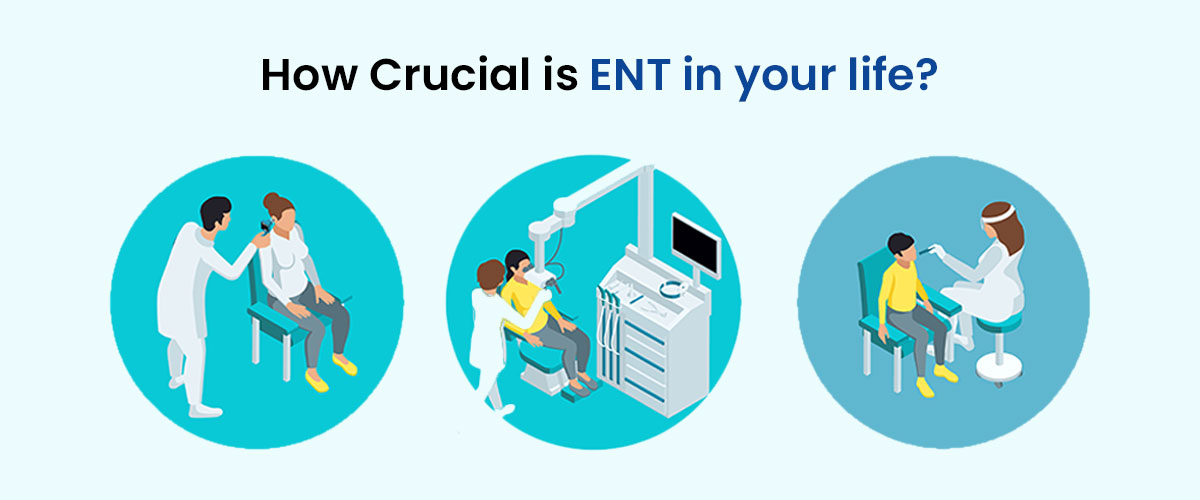


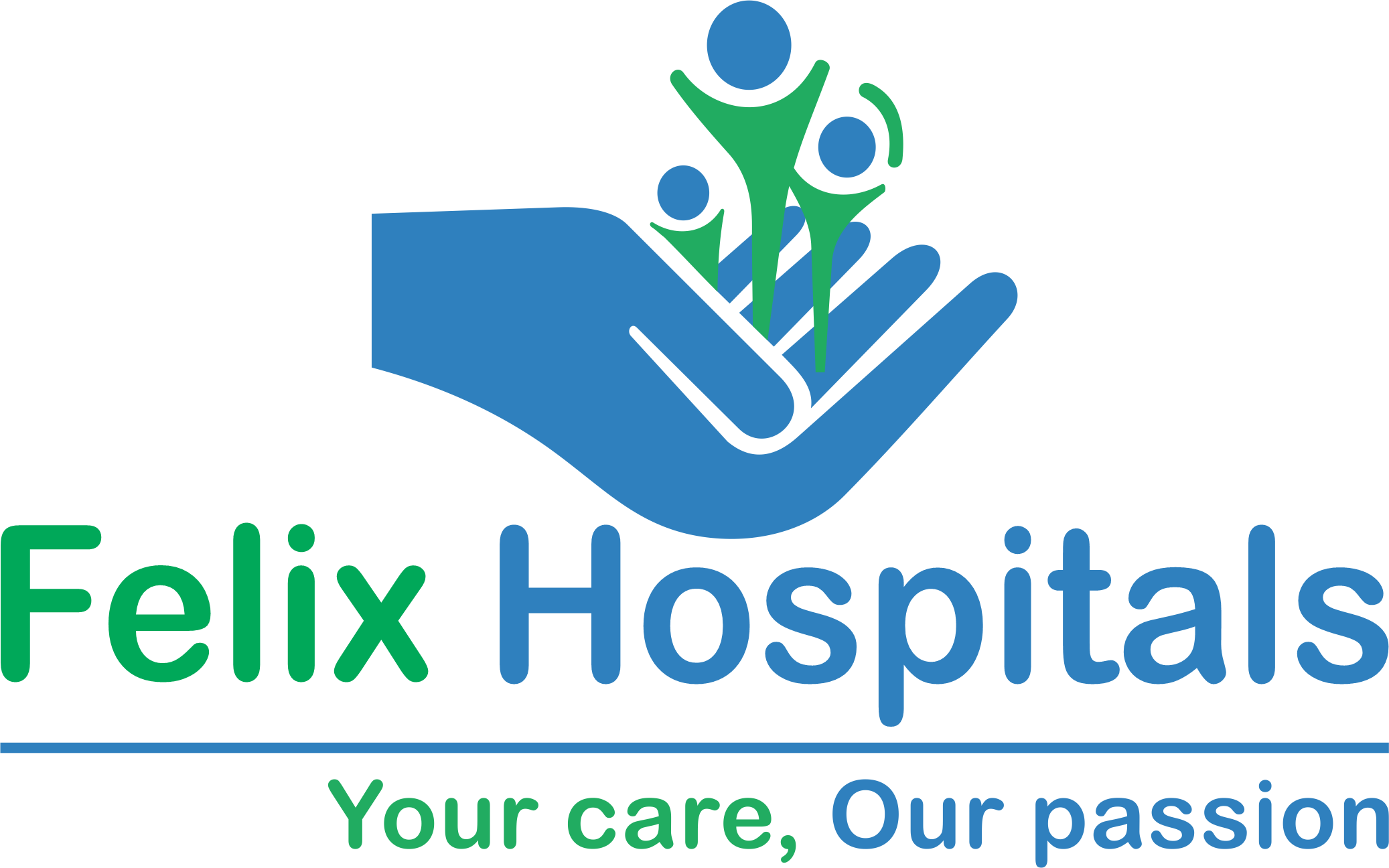


 Emergency : +(91)9667064100
Emergency : +(91)9667064100